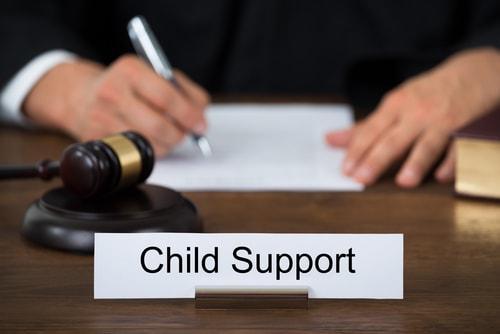Wheaton |
St. Charles |
Sycamore
 630-665-7300
630-665-7300
Recent Blog Posts
Mental Health Experts Say You Should Avoid These Three Mistakes During Divorce
 Regardless of the circumstances, getting a divorce can have a dramatic impact on your mental wellbeing. Divorce can bring on feelings of failure, despair, and anxiety about the future. Some people end up developing unhealthy coping mechanisms in order to deal with the torrent of emotion following the end of a marriage. Although going through a divorce can be extremely stressful, it is not only possible to get through the rough times most people end up much happier and healthier than they were before the divorce. Mental health experts encourage anyone going through a stressful divorce to avoid these common mistakes.
Regardless of the circumstances, getting a divorce can have a dramatic impact on your mental wellbeing. Divorce can bring on feelings of failure, despair, and anxiety about the future. Some people end up developing unhealthy coping mechanisms in order to deal with the torrent of emotion following the end of a marriage. Although going through a divorce can be extremely stressful, it is not only possible to get through the rough times most people end up much happier and healthier than they were before the divorce. Mental health experts encourage anyone going through a stressful divorce to avoid these common mistakes.
Mistake 1: Being Too Hard on Yourself
If you are an overachiever, have children to care for, or have a demanding career, you may not take time for yourself very often. Mental health specialists encourage those ending a marriage to give themselves a break. Do not expect yourself to be able to function at 100 percent when you are dealing with the emotional and financial burden of a divorce. Just as your body needs rest after a physical injury, your mind needs time to heal after an emotionally-trying time too.
What Are My Adoption Options in Illinois?
 Bringing a child into your family through adoption is life changing for everyone involved. Your family not only gains a cherished loved one, you also give a child in need the loving home that he or she deserves. The adoption process is very involved - both emotionally and legally. It is important for anyone considering adoption to thoroughly research the available avenues for adopting a child in order to determine what course of action is right for them.
Bringing a child into your family through adoption is life changing for everyone involved. Your family not only gains a cherished loved one, you also give a child in need the loving home that he or she deserves. The adoption process is very involved - both emotionally and legally. It is important for anyone considering adoption to thoroughly research the available avenues for adopting a child in order to determine what course of action is right for them.
Illinois Adoption Laws
Illinois law states that an individual may adopt a child if he or she:
- Has lived in the state of Illinois for a minimum of six months or is a member of the Armed Forces and has lived in Illinois for at least 90 days
- Does not have a legal disability
- Has a good reputation
Typically, adoptive parents must be over 18 years of age. However, the court may make exceptions to this rule in certain cases. Prospective adoptive parents who wish to adopt a non-relative will be subject to a state and federal criminal background check as part of the adoption investigation. If the potential adoptive child is over 13 years old, he or she must consent to the adoption.
Study Suggests Women in Leadership Positions Are More Likely to Be Victims of Sexual Harassment
 Workplace sexual harassment is an illegal form of discrimination prohibited by both federal and state law. It can take the form of offensive sexual or gender-based remarks and behavior, or sexual harassment can involve a person in a position of authority wielding this power for sexual gain. We most often think of sexual harassment victims as being those who are lower on the corporate ladder, but this is not always the case. A recent study suggests that women who have manager or supervisor positions may actually be more likely to experience sexual harassment than other employees.
Workplace sexual harassment is an illegal form of discrimination prohibited by both federal and state law. It can take the form of offensive sexual or gender-based remarks and behavior, or sexual harassment can involve a person in a position of authority wielding this power for sexual gain. We most often think of sexual harassment victims as being those who are lower on the corporate ladder, but this is not always the case. A recent study suggests that women who have manager or supervisor positions may actually be more likely to experience sexual harassment than other employees.
Women Who Supervise Men May Experience Sexual Harassment More Frequently
Since the #MeToo movement began in earnest a couple years ago, more and more people are talking about sexual harassment in the workplace. For too long, the issue of workplace discrimination was considered taboo. Now, as victims of sexual harassment are speaking up about their mistreatment, an increasing number of employers are taking steps to prevent and address sexual harassment in their businesses. Additionally, more research is being conducted to help understand how and why sexual harassment occurs.
What Should I Do If I Cannot Afford Child Support?
 When parents get divorced or are unmarried, one parent may be required to pay the other child support in order to share the costs of raising the child. Child support payments can be a considerable expense and sometimes parents may have trouble paying child support. Children have a legal right to receive financial support from both of their parents. If a parent is ordered to pay child support and he or she fails to make payments in full and on time, he or she can face serious civil and even criminal consequences.
When parents get divorced or are unmarried, one parent may be required to pay the other child support in order to share the costs of raising the child. Child support payments can be a considerable expense and sometimes parents may have trouble paying child support. Children have a legal right to receive financial support from both of their parents. If a parent is ordered to pay child support and he or she fails to make payments in full and on time, he or she can face serious civil and even criminal consequences.
Requesting a Child Support Modification
When the court issues a child support order, it is intended to be fair and reasonable based on the parents' financial circumstances and the child's needs. However, sometimes those circumstances change and the parents need to change their child support order. In order to be granted a modification to your child support order, you must file a petition for modification with the court. A modification may be granted if a party can show that there has been a “substantial change in circumstances.” Examples of a substantial change in circumstances include:
When Will My Obligation to Pay Spousal Support End?
 When a married couple divorces in Illinois, the court may require the higher-earning spouse to pay spousal support to the other spouse. Spousal support is also called spousal maintenance or alimony. The support is typically intended to be temporary and rehabilitative in nature, but there are exceptions. The higher-earning spouse provides payments to the recipient spouse until he or she can get back on his or her feet financially. The issue of the payment of spousal support may also be agreed upon ahead of time through a prenuptial agreement. Whether you are the payor or recipient of spousal support, you may want to know how long these payments will last. The answer depends on a variety of factors.
When a married couple divorces in Illinois, the court may require the higher-earning spouse to pay spousal support to the other spouse. Spousal support is also called spousal maintenance or alimony. The support is typically intended to be temporary and rehabilitative in nature, but there are exceptions. The higher-earning spouse provides payments to the recipient spouse until he or she can get back on his or her feet financially. The issue of the payment of spousal support may also be agreed upon ahead of time through a prenuptial agreement. Whether you are the payor or recipient of spousal support, you may want to know how long these payments will last. The answer depends on a variety of factors.
Temporary Spousal Support vs. Permanent Spousal Support
If you and your spouse agreed to a spousal support arrangement in a Marital Settlement Agreement, the payments will end according to that agreement. When the court assigns spousal support, it is typically intended to last long enough for the recipient to gain the education, training, skills, and employment needed to become financially independent. Illinois law provides a formula for calculating the duration of a spousal support order that depends upon the length of the marriage. Longer marriages generally lead to proportionately longer orders for spousal support.
More Young People are Signing Prenuptial Agreements Before Getting Married
 Prenuptial agreements, also called premarital agreements or “prenups,” have an undeserved reputation as only being necessary for celebrities or the ultra-rich. However, more and more people are realizing how beneficial a prenuptial agreement can actually be. Prenuptial agreements allow couples to decide in advance how their property should be divided if the marriage ends in divorce, clarify their financial responsibilities and rights during marriage, make sure property is passed down to selected heirs when a spouse passes away, and more.
Prenuptial agreements, also called premarital agreements or “prenups,” have an undeserved reputation as only being necessary for celebrities or the ultra-rich. However, more and more people are realizing how beneficial a prenuptial agreement can actually be. Prenuptial agreements allow couples to decide in advance how their property should be divided if the marriage ends in divorce, clarify their financial responsibilities and rights during marriage, make sure property is passed down to selected heirs when a spouse passes away, and more.
Survey Shows That More Millennials Are Using Prenups
A study conducted by the American Academy of Matrimonial Lawyers shows that more than half of attorneys surveyed have seen an increase in the number of young couples signing premarital agreements. Many attribute the increase in prenuptial agreements to the fact that, on average, Americans are getting married later in life than they have previously. The average U.S. male gets married at age 29.9 and the average female gets married at age 28.1. Tying the knot at almost 30 years old gives couples more time to accumulate property and debts that require protection through a prenuptial agreement. Many millennials also have a 401(k), stock options, a start-up business, intellectual property or other complex assets which can be protected by a prenuptial agreement.
New Laws Concerning Sexual Harassment in Illinois Will Take Effect in 2020
 Title VII of the Civil Rights Act of 1964 prohibits employers from discriminating against a person because of their sex, national origin, race, or skin color. Since this essential piece of legislation, many more laws have been enacted to prevent employment discrimination, and most recently, workplace sexual harassment. Beginning in 2020, Illinois employers will be subject to new laws designed to prevent and address sexual harassment. If you have been a victim of discrimination or sexual harassment at work, a qualified sexual harassment attorney can help.
Title VII of the Civil Rights Act of 1964 prohibits employers from discriminating against a person because of their sex, national origin, race, or skin color. Since this essential piece of legislation, many more laws have been enacted to prevent employment discrimination, and most recently, workplace sexual harassment. Beginning in 2020, Illinois employers will be subject to new laws designed to prevent and address sexual harassment. If you have been a victim of discrimination or sexual harassment at work, a qualified sexual harassment attorney can help.
Illinois Employers May No Longer Require Arbitration for Sexual Harassment Claims
Illinois Governor J.B. Pritzker signed the Workplace Transparency Act into law in August 2019 and it will go into effect January 1, 2020. The act prohibits employers from unilaterally requiring arbitration for sexual harassment claims or any other claim concerning laws enforced by the Illinois Department of Human Rights (IHRA) or Equal Employment Opportunity Commission (EEOC). Employers are also prohibited from requiring employees to sign a confidentiality clause that prevents the employees from reporting violations of Equal Employment Opportunity laws including violations of the Age Discrimination in Employment Act, Equal Pay Act, Illinois Human Rights Act, and Americans with Disabilities Act.
Red Flags That Your Spouse is Committing Financial Fraud During Divorce
 Money-related concerns are often one of the most crucial aspects of a divorce. In Illinois, property is distributed according to equitable distribution laws. Instead of the marital estate being divided exactly 50/50, Illinois courts consider a wide variety of factors and then divide marital property fairly based on the spouses' economic and life circumstances. However, when the court does not have accurate financial information from a spouse, the divorce settlement may not be equitable. There are many warning signs of financial fraud during divorce that could mean your spouse is attempting to manipulate the divorce process to gain an unfair advantage.
Money-related concerns are often one of the most crucial aspects of a divorce. In Illinois, property is distributed according to equitable distribution laws. Instead of the marital estate being divided exactly 50/50, Illinois courts consider a wide variety of factors and then divide marital property fairly based on the spouses' economic and life circumstances. However, when the court does not have accurate financial information from a spouse, the divorce settlement may not be equitable. There are many warning signs of financial fraud during divorce that could mean your spouse is attempting to manipulate the divorce process to gain an unfair advantage.
What is Financial Fraud?
A spouse commits financial fraud when he or she does not fully and accurately disclose financial information like assets, income, and debts for the purposes of asset division, child support, and/or spousal maintenance during divorce. One of the most common forms of financial fraud occurs when a spouse hides assets or sources of income. For example, a spouse may “forget” to declare a piece of real estate he or she owns or fail to report all revenue streams. He or she may have hidden funds in an offshore account or use his or her business to conceal assets. Some spouses will also try to manipulate the divorce settlement in his or her favor by fraudulently overstating debts and expenses.
Can Inappropriate Text Messages Constitute Workplace Sexual Harassment?
 The rise of cell phones and text messaging has completely revolutionized the way people communicate with each other. If you are like many employees in the United States, you probably text message, call, and email work associates on a regular basis. Unfortunately, the causal nature of text messages can sometimes cause people to make insensitive statements to their coworkers or employees. Increasingly, text messages are being used as evidence in sexual harassment claims. How do you know when a text message constitutes sexual harassment according to the law?
The rise of cell phones and text messaging has completely revolutionized the way people communicate with each other. If you are like many employees in the United States, you probably text message, call, and email work associates on a regular basis. Unfortunately, the causal nature of text messages can sometimes cause people to make insensitive statements to their coworkers or employees. Increasingly, text messages are being used as evidence in sexual harassment claims. How do you know when a text message constitutes sexual harassment according to the law?
Text Messages Can Create a Hostile Work Environment
The two main types of sexual harassment are quid pro quo and hostile environment sexual harassment. If a boss or supervisor implies or outright says that he or she will give you workplace perks or continued employment if you submit to his or her sexual advances, you may be a victim of quid pro quo sexual harassment. Hostile work environment harassment, on the other hand, can be much more subtle. Often, this type of harassment starts out very subtly. Your colleague may begin by texting you questions or messages regarding work assignments but then slowly bring up more personal topics.
How to Handle Holiday Parenting Time Disputes After a Divorce
 If this is your first holiday season as a recently separated or divorced parent, you may understandably feel upset and disappointed. Holidays are simply not the same without the familiar sounds of children laughing and having fun. Parents may argue about which parent will spend which holiday with the children because they simply do not want to miss the experience. While there is no way to eliminate the pain of missing your children, there may be a way for you and your child's other parent to work out a holiday parenting time schedule that works for both of you.
If this is your first holiday season as a recently separated or divorced parent, you may understandably feel upset and disappointed. Holidays are simply not the same without the familiar sounds of children laughing and having fun. Parents may argue about which parent will spend which holiday with the children because they simply do not want to miss the experience. While there is no way to eliminate the pain of missing your children, there may be a way for you and your child's other parent to work out a holiday parenting time schedule that works for both of you.
Put Holiday Parenting Time Arrangements in Your Parenting Plan
If you plan to get divorced in Illinois, you will be asked to create a parenting plan or parenting agreement. The agreement must include several provisions that detail how parental responsibilities and parenting time are divided between the parents. You will also want to include information about where the children will spend the major holidays. Some parents choose to split the holidays between them. For example, one parent may have the children on Thanksgiving and the other has the children on Christmas. Other parents decide to make a rotation schedule so that parents spend certain holidays with the children every other year. The most important thing is to decide on an arrangement as soon as possible so that you can avoid having the same argument about where the kids will spend holidays every year.


 Read More
Read More





